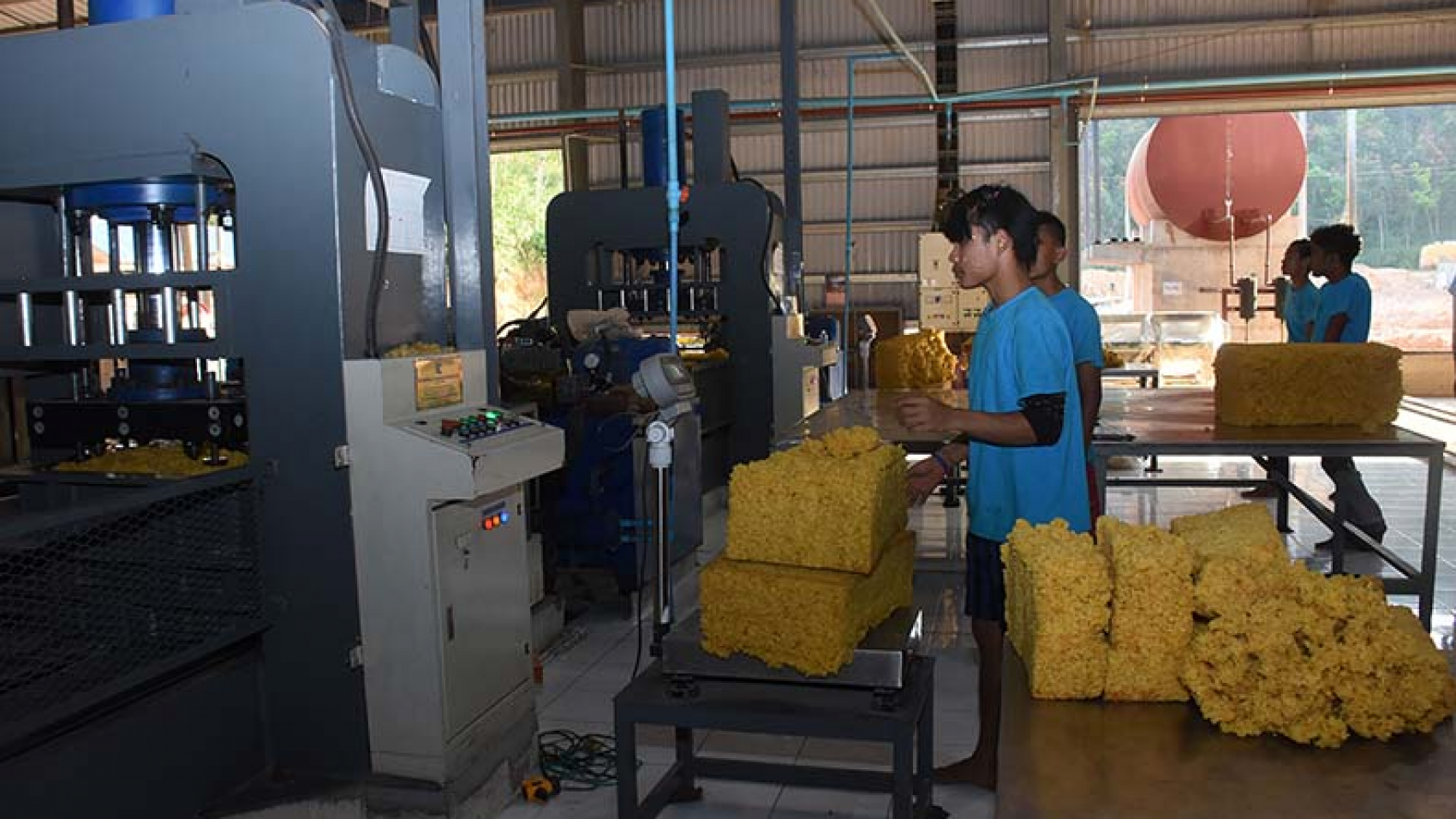Edible oil dealers told the Global New Light of Myanmar (GNLM) that there might be changing market conditions in Yangon edible oil market in early September 2022. At present, the prices of peanut oil, sesame oil and sunflower oil are surging. The palm oil prices stayed between K8,500-K9,700 per viss. In the second week of September, the prices of palm oil slid to K8,500-K8,600 per viss. Traders speculated on further drop in prices. The palm oil reference price in Yangon fell to the lowest of K3,525 per viss in early August. Thereafter, the price gradually went up according to the reference rates issued on a weekly basis. The reference price touched a high of K5,220 for a week ending 11 September.
The reference price for a week from 13 to 19 September is still not revealed on 11 September. However, the prices of palm oil in the wholesale market drastically dropped. On 11 September, the palm oil was priced at K8,500-K8,600 in wholesale markets. They are sold at K8,000 only at oil tanks, citing the market reports. Therefore, there is a price difference of K2,800 between the reference price and the prices set by distributors. There is also a large gap between the reference price and the wholesale price. On 12 August, the wholesale price K8,600 per viss was around K5,000 higher than the reference price K3,525. At that time, the main distributors offered the same price as the reference price although it was hard to buy the palm oil.
In early August, the mobile market trucks with subsidized price schemes sold the palm oil at only K3,700 per viss while the wholesale price was estimated at K8,600 per viss. Some unscrupulous businesspersons resold them with a profit of K1,500-K2,000. Some fried food businesses bought the edible oil from those sellers as they are K1,500-K2,000 cheaper than the wholesale prices. It is a win-win situation for both parties, Daw Hla Mu, a fritter seller from Kamayut Township, told the GNLM. The consumers are anticipating the changing market conditions. In the previous months, the mobile market trucks sold them at the cheaper rate yet there is a limited supply and quo
ta. The wholesale price is about K4,000 higher than the reference price, Ko Myint Lwin, a trader who delivers palm oil to other regions and states from Nyaungpinlay and Bayintnaung markets, told the GNLM. The wholesale price is doubled compared to the reference price. Majority of the consumers cannot get access to the subsidized scheme of mobile market trucks. They are forced to buy the palm oil at around K10,000 per viss, the GNLM quoted Daw Khaing who lives at a dormitory in Hlinethaya Township, as saying. As the price movement is likely to happen in the coming days, traders do not make a big purchase when the price is decreasing. The consumers also expect to see palm oil and vegetable oil bottles in the shelves of city marts.
Source: The Global New Light of Myanmar

